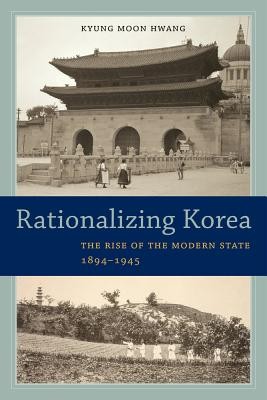
- We will send in 10–14 business days.
- Author: Kyung Moon Hwang
- Publisher: University of California Press
- ISBN-10: 0520288327
- ISBN-13: 9780520288324
- Format: 15 x 22.9 x 3.1 cm, minkšti viršeliai
- Language: English
- SAVE -10% with code: EXTRA
Reviews
Description
The first book to explore the institutional, ideological, and conceptual development of the modern state on the peninsula, Rationalizing Korea analyzes the state's relationship to five social sectors, each through a distinctive interpretive theme: economy (developmentalism), religion (secularization), education (public schooling), population (registration), and public health (disease control). Kyung Moon Hwang argues that while this formative process resulted in a more commanding and systematic state, it was also highly fragmented, socially embedded, and driven by competing, often conflicting rationalizations, including those of Confucian statecraft and legitimation. Such outcomes reflected the acute experience of imperialism, nationalism, colonialism, and other sweeping forces of the era.
EXTRA 10 % discount with code: EXTRA
The promotion ends in 21d.15:40:58
The discount code is valid when purchasing from 10 €. Discounts do not stack.
- Author: Kyung Moon Hwang
- Publisher: University of California Press
- ISBN-10: 0520288327
- ISBN-13: 9780520288324
- Format: 15 x 22.9 x 3.1 cm, minkšti viršeliai
- Language: English English
The first book to explore the institutional, ideological, and conceptual development of the modern state on the peninsula, Rationalizing Korea analyzes the state's relationship to five social sectors, each through a distinctive interpretive theme: economy (developmentalism), religion (secularization), education (public schooling), population (registration), and public health (disease control). Kyung Moon Hwang argues that while this formative process resulted in a more commanding and systematic state, it was also highly fragmented, socially embedded, and driven by competing, often conflicting rationalizations, including those of Confucian statecraft and legitimation. Such outcomes reflected the acute experience of imperialism, nationalism, colonialism, and other sweeping forces of the era.


Reviews